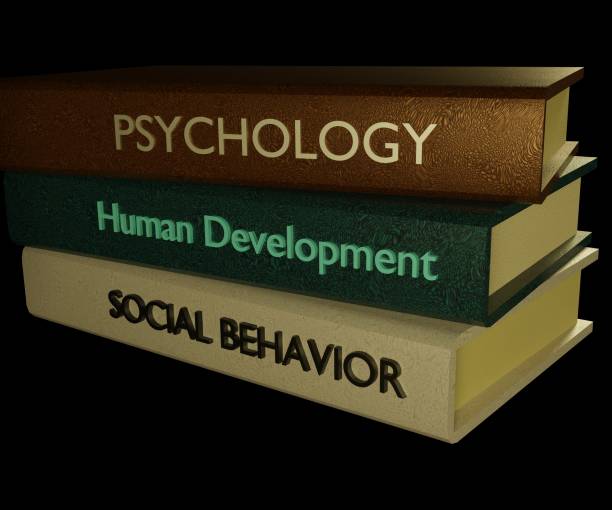Have you ever wondered why the other person acts the way they do?
Reading psychology books can give you insights into the human psyche and help you better understand yourself and your surroundings.
No matter what you major in or what profession you are, knowing psychology can help you find ways to blend in and change how you approach people.
Here are 7 psychology books that will help you understand what people expect and their reactions:
1. The Expectation Effect: How Your Mindset Can Change Your World
David Robson wrote and published this book in 2022. He suggests that what we humans expect in a situation determines the state of our expectations. It suggests that how we see a situation, and how our mindset makes out of a situation, determines who and what we are and how we can be a better person.
It talks about how our expectations of a situation changes our mindset and the way we perceive the happenings around us.
About the author:
Award-winning science writer David Robson focuses on the boundaries of the human body, mind, and behavior.
The Guardian, the Atlantic, Aeon, Men’s Health, and several more publications have published his writing.
David was a finalist for the Best British Science Journalist of the Year Award in 2022 and won awards from the UK Medical Journalists.
2. The Laws Of Human Nature
The 18 rules of human nature outlined by Robert Greene are helpful in our understanding and prediction of our own and other people’s behavior.
Since multiple areas of the brain control thoughts and feelings, we usually have no understanding of why anyone does anything.
Greene explores the complexity of human nature in The Laws of Human Nature, showing that by understanding our actual natures, we can live more in control of our lives.
We must accept that every one of us has flaws and is prone to engaging in some harmful activities.
According to Greene, accepting these flaws and being honest about them helps us live more genuine and compassionate lives.
About the author:
American writer Robert Greene specializes in novels about seduction, strategy, and power. Including The 48 Laws of Power, The Art of Seduction, The 33 Strategies of War, The 50th Law (co-authored with rapper 50 Cent), Mastery, The Laws of Human Nature, and The Daily Laws, he is the author of seven international bestsellers.
3. Testosterone: The Story Of The Hormone That Dominates And Divides Us
The book is incredibly interesting and full of amazing facts.
This book explains the effects of testosterone on our bodies, including how it affects our behavior and sexual cravings, in such a simple and memorable way that no reader could continue to minimize the role that nature plays.
Starting with an anecdote of a chimpanzee hitting his wife, this comprehensive work explores testosterone from every perspective.
The book spends a lot of time on human hormones and how much of an impact they have on us, whether we like it or not.
About the author:
Dr. Carole Hooven is an award-winning educator, author, and expert in human evolution.
Dr. Hooven focuses her research on behavioral neuroendocrinology, which studies the connection between hormones, the brain, and behavior in humans and other animals.
She previously taught at Harvard University in the Department of Human Evolutionary Biology but is now a non-resident senior fellow at the American Enterprise Institute.
4. The Psychobiotic Revolution Mood, Food And The New Science Of The Gut-Brain Connection
Scientists have made a revolutionary discovery in the field of psychobiotics and have come to realize the close link between your mental and physical well-being and the four-pound colony of bacteria known as your microbiome. This ground-breaking book explains the microbiome that exists in your intestines.
Prominent medical experts Ted Dinan and John F. Cryan, along with senior journalist Scott C. Anderson, describe how fixing the gut microbiota might help with common mental health issues, especially anxiety and depression.
Research shows that mental well-being is correlated with gut health, and this book explains how to cultivate a positive microbiome that improves your mood and quality of life.
About the authors:
Veteran science journalist Scott C. Anderson specializes in computer programming and medical subjects. In addition to his work combining computer programming and medical research, he was one of the designers of the computer game, Lego Island.
Professor John F. Ryan is the chair of the anatomy and neuroscience department at University College Cork. The lead researcher of the cutting-edge Alimentary Pharmabiotic Centre, which studies the function of microbiome in health and illness.
Ted Dinan is a University College Cork professor of psychiatry and a principal investigator in the Alimentary Pharmabiotic Center. At St. Bartholomew’s Hospital in London, he previously held the positions of professor of psychological medicine and chair of clinical neurosciences.
5. Mastery
The book Mastery talks about the journey to becoming a master in any field.
Robert Greene studies the lives of masters of history, such as Leonardo da Vinci, Charles Darwin, Marie Curie, and Albert Einstein, to understand how they achieved mastery in their fields.
Greene lists conditions to achieve mastery, among which are commitment, persistence, and mentorship.
“Let us state it in the following way: At your birth a seed is planted. That seed is your uniqueness. It wants to grow, transform itself, and flower to its full potential. It has a natural, assertive energy to it. Your Life’s Task is to bring that seed to flower, to express your uniqueness through your work. You have a destiny to fulfill. The stronger you feel and maintain it—as a force, a voice, or in whatever form-the greater your chance for fulfilling this Life’s Task and achieving mastery.”
Robert Greene
About the author:
The 48 Laws of Power, The Art of Seduction, The 33 Strategies of War, The 50th Law, Mastery, The Laws of Human Nature, and most recently The Daily Laws are among the New York Times bestsellers written by Robert Greene.
6. The Power Of Habit: Why We Do What We Do In Life And Business
Charles Duhigg’s book “The Power of Habit” provides an understanding of how habits impact our lives and how we might attract these insights to improve our lives.
A brain pattern: cue, routine, and reward controls the habit loop. Knowing these elements makes it easier to arrange healthy habits or break bad ones.
Duhigg argues that craving is what drives every habit, and that is a key idea that one needs to build new habits or remodel old ones.
About the author:
Charles Duhigg is an American journalist and nonfiction writer. He worked for The New York Times as a reporter. In addition to being a writer for The New Yorker Magazine, he has authored three books on productivity and habits: Super communicators: How to Unlock the Secret Language of Connection, Smarter Faster Better, and The Power of Habit: Why We Do What We Do in Life and Business.
7. Courage To Be Disliked
In “The Courage to Be Disliked”, the author narrates through a philosopher who speaks to a young man, and through five conversations insightful into the human mind, he realizes that each of us is responsible for the place we call home.
This book is a life-changing experience that teaches you how to be the person you actually want to be and how to find permanent pleasure. It is wise, empowering, and profoundly liberating.
This book, based on the teachings of well-known psychologist Alfred Adler, shows you the fundamentals of self-forgiveness, self-care, and mind cleaning in a clear, understandable manner that is suitable for all readers.
About the authors:
Kishima Ichiro Translator of German and English, philosopher, and Adlerian psychologist. M.A. from Kyoto University in philosophy. The Japanese Society of Adlerian Psychology’s director.
Fumitake Koga is a professional writer and author who has won awards. He has published several best-selling business and general non-fiction books. When he first read Adlerian psychology in his late 20s, its theories that challenged conventional thinking had a profound impact on him.
Conclusion:
Ultimately, reading psychology books leads to understanding human behavior, motivations, and the complicated workings of the mind. These books also help you to face the challenges that you will face in the future and make wise decisions.
Understand yourself and those around you. Master your goals, find ways to control yourself, and be happy.
EntrepreneursLeague is an initiative to support startups and leading entrepreneurs with more visibility, resources, and community for growth and networking.




